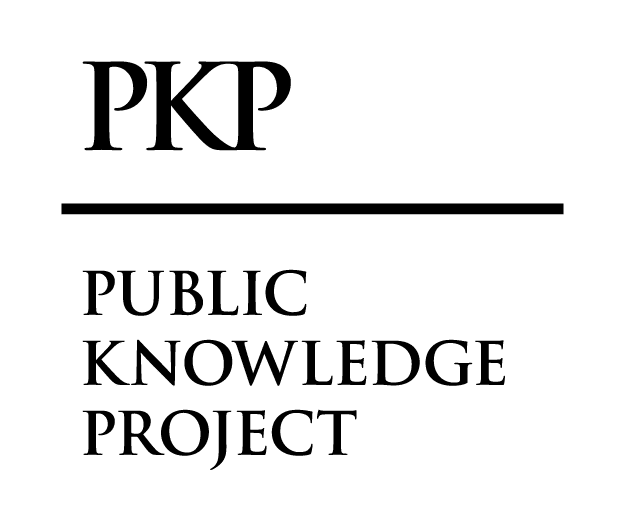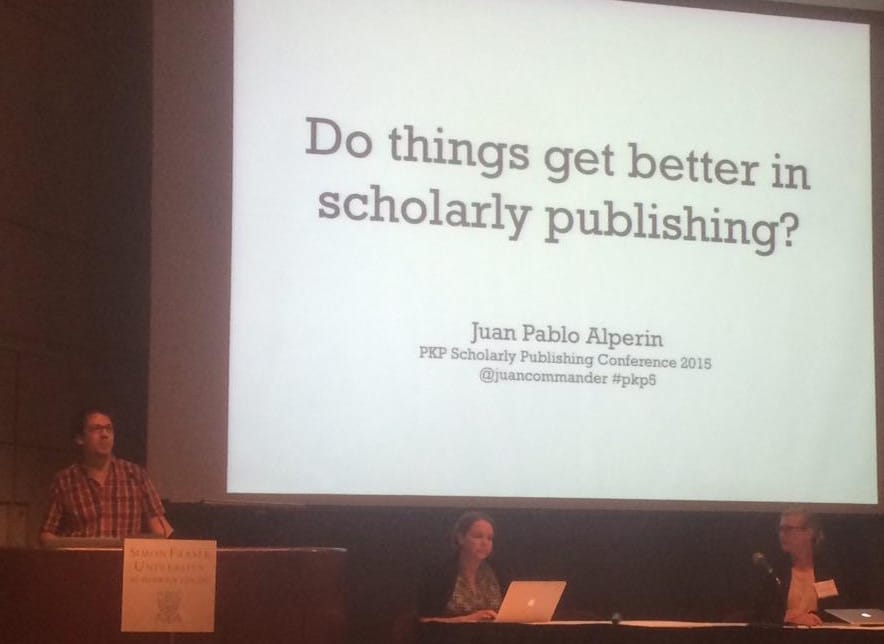Subscribe to our newsletter
Thoughts From The Fifth PKP Scholarly Publishing Conference
 I was pleased to attend and speak at the Fifth PKP Scholarly Publishing Conference in Vancouver in August . PKP stands for the “Public Knowledge Project”, which was founded in 1998 by the Canadian educator John Willinsky from within the Faculty of Education at UBC (University of British Columbia). John is currently a faculty member at Stanford and PKP’s administrative home base is the Simon Fraser University Library. The project is dedicated to improving the scholarly and public quality of research.
I was pleased to attend and speak at the Fifth PKP Scholarly Publishing Conference in Vancouver in August . PKP stands for the “Public Knowledge Project”, which was founded in 1998 by the Canadian educator John Willinsky from within the Faculty of Education at UBC (University of British Columbia). John is currently a faculty member at Stanford and PKP’s administrative home base is the Simon Fraser University Library. The project is dedicated to improving the scholarly and public quality of research.
Synonymous with PKP is the Open Journals Systems (OJS), open source software for peer review and hosting of publications. OJS was released in 2001 and is now estimated to be used by thousands of journals in every continent, estimating to be the world’s most widely used journal management and publishing system.
One of the key strengths of PKP/OJS is the global community of users from around the world. Many of their publications are run on fairly low comparative budgets, supporting publishing programs in the developing world. Examples of OJS users and attendees at the meeting include INASP (International Network for the Availability of Scientific Publications), and AJOL (African Journals Online). Other notable attendees included PLoS, CrossRef and LOCKSS all of whom have innovative ways to support the OJS community.
The PKP program format included: collaborative discussions with community members and the PKP team, sprints and user workshops, a keynote on, “Thinking through and with the Interface: Designing Scholarship for the Screen” by Miriam Posner, from UCLA, and 27 lightening talks each lasting 5 minutes. The sessions were full of information and helpful user experiences.
Another highlight of the meeting was Juan Pablo Alperin’s presentation on: Do Things Get Better in Scholarly Publishing? This navigated through his personal journey from software developer, building OJS, to PhD candidate, researching how to improve quality, impact, and reach of scholarly publishing in Latin America, to his current position as an Assistant Professor, working within the academic credit and tenure promotion system.
Here are a few of my favorite lightening sessions, kindly recorded by the OJS team:
Lisa Tweten – The Writing’s on the Wall: Open Access Tutorials for Epigraphic Studies
Lisa passionately talked through the new online access key accent epigraphic texts (stone writings) and how at UBC were making open access teaching modules that make use of the material they owned, a wonderful way to transfer knowledge.
Matthew Murray – Herding Cats: Creating a student run OJS journal in a library school
Matthew gave a hysterical tongue-in-cheek review on the challenges of a student run journal.
Andrea Kosavic – What’s in a Name? Self-Identifying as a Publisher or Host
Andrea presented their research based on the Library Publishing Coalition directory, the research focused on where does hosting end and publishing begin, and how do libraries decide how to self-identify? Interestingly the early results shows more preferred to be called hosts than publishers, 53% to 34%.
A key point from previous PKP meetings was the fact that a publisher’s job is not complete, just because content has been posted online and is openly accessible, there’s a lot more to publishing and understanding readers and users.
The meeting concluded with an open AGM, annual report, and a number of updates given on key topics such as:
- the beta testing of the latest OJS 3.0 release (big things expected)
- the LOCKSS private network archiving initiative
- the Publishing Cooperative,
- an XML project which may see OJS software being able to produce XML for their users.
This is a vibrant community, and while they may lack some of the funds, staffing and central coordination compared to the larger more commercial savvy publishers, OJS users do however have an important role to play in this ever changing landscape of research, open access and regional publishing.




